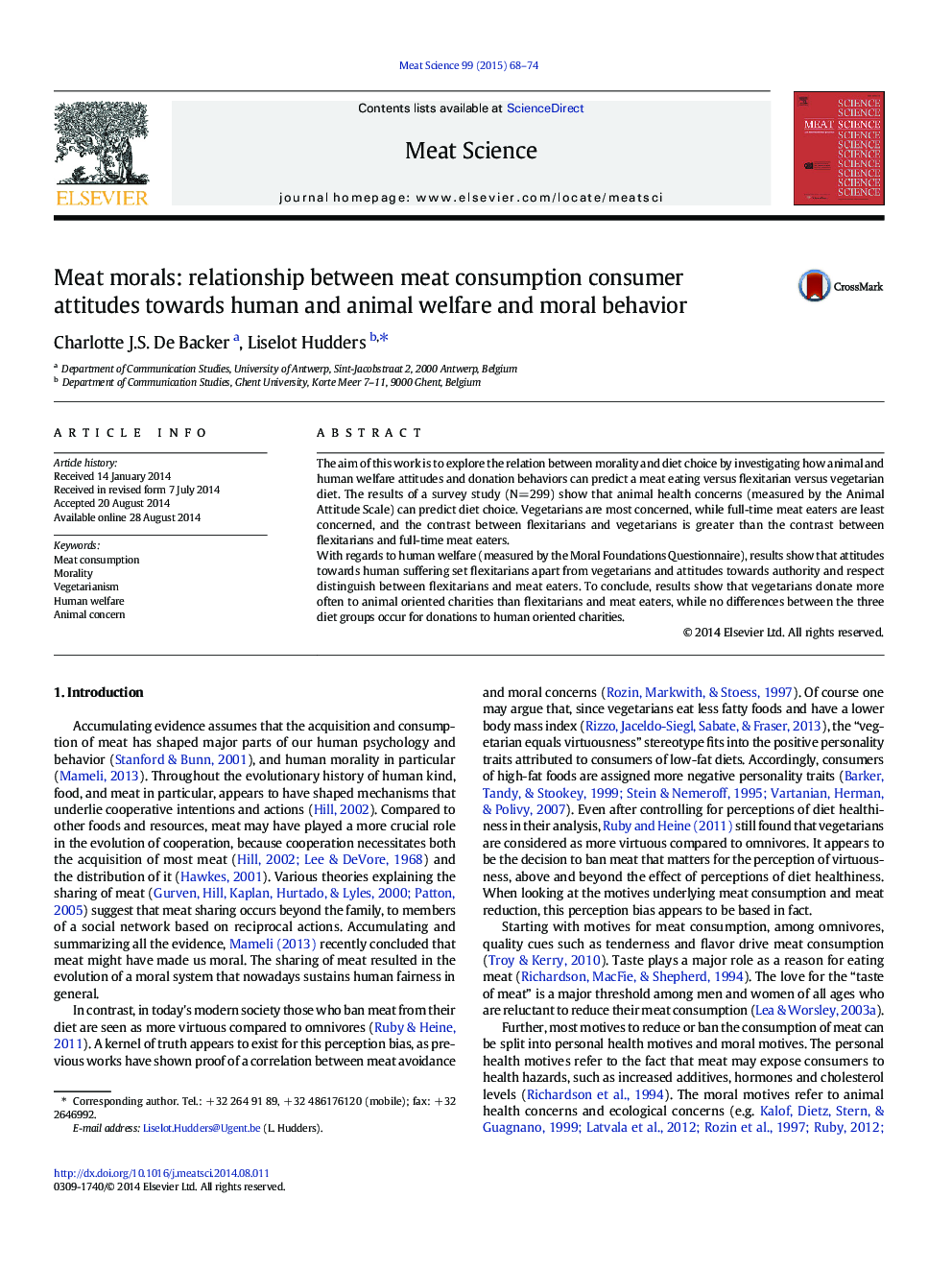| Article ID | Journal | Published Year | Pages | File Type |
|---|---|---|---|---|
| 2449862 | Meat Science | 2015 | 7 Pages |
•Flexitarians score lower on values of animal welfare than vegetarians.•Flexitarians score higher on values of animal welfare than full-time meat eaters.•Flexitarians score lower on values of human suffering than vegetarians.•Flexitarians score lower on respect for authority than full-time meat eaters.•Vegetarians donate more often to animal charities than both meat-eating groups.
The aim of this work is to explore the relation between morality and diet choice by investigating how animal and human welfare attitudes and donation behaviors can predict a meat eating versus flexitarian versus vegetarian diet. The results of a survey study (N=299) show that animal health concerns (measured by the Animal Attitude Scale) can predict diet choice. Vegetarians are most concerned, while full-time meat eaters are least concerned, and the contrast between flexitarians and vegetarians is greater than the contrast between flexitarians and full-time meat eaters.With regards to human welfare (measured by the Moral Foundations Questionnaire), results show that attitudes towards human suffering set flexitarians apart from vegetarians and attitudes towards authority and respect distinguish between flexitarians and meat eaters. To conclude, results show that vegetarians donate more often to animal oriented charities than flexitarians and meat eaters, while no differences between the three diet groups occur for donations to human oriented charities.
